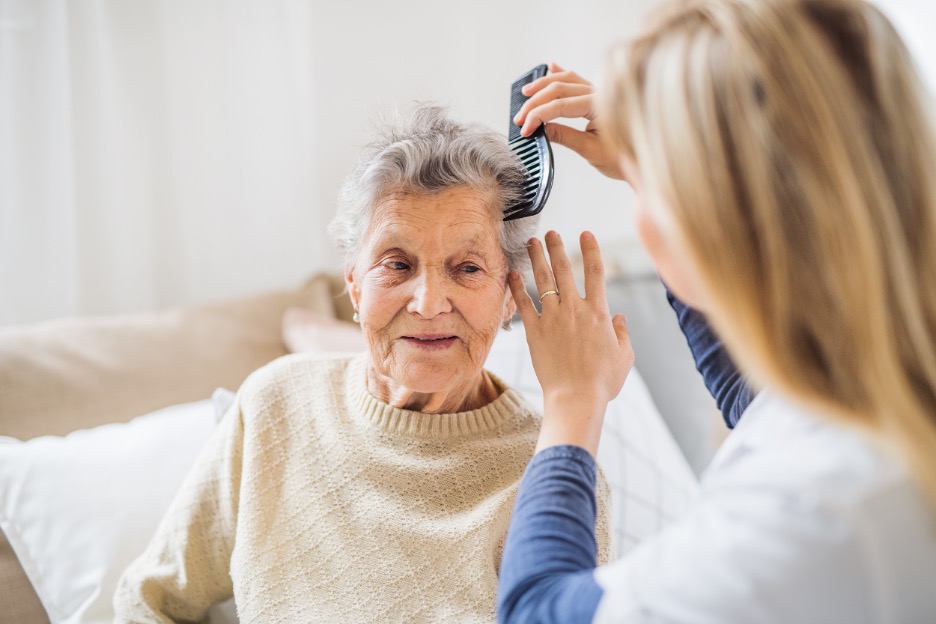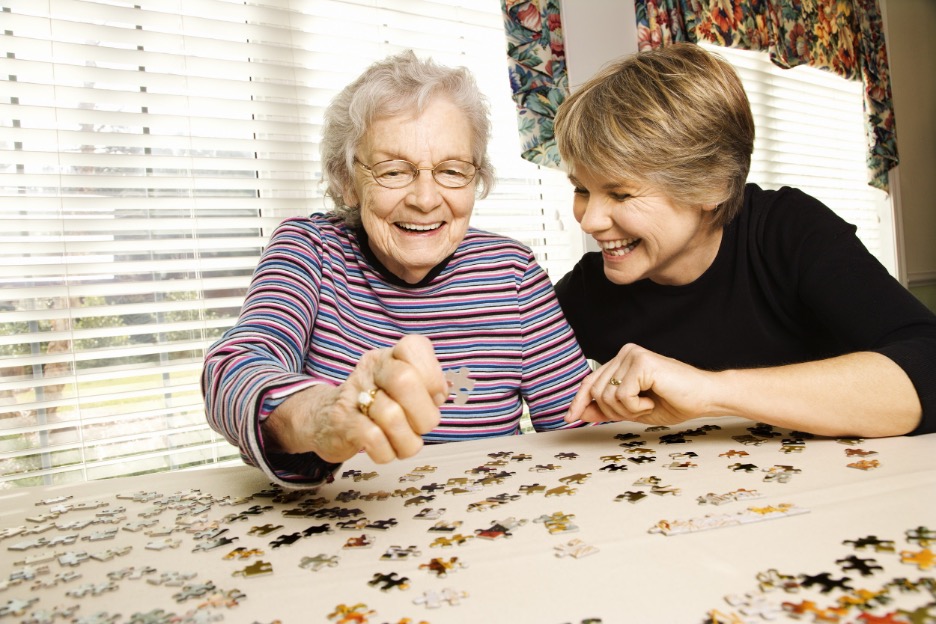Taking care of a loved one is a time-honoured tradition that most people consider to be their duty and responsibility. Unfortunately, due to longer life spans and a rapidly ageing population, family members as providers of in home care is not always a viable option. The financial, health, and psychological consequences of caring takes a toll. Fortunately, there is a range of in home care services that can fill the gap for families and provide much-needed respite and ongoing aged care services for their loved ones ageing in place.
One of the benefits of care in the home is the ability to keep your loved one ageing in place where they want to be, which is at home. Safety, independence, and mental and physical well-being are the hallmarks of exceptional in home care.
What is In Home Care?

In-home care is like having the most compassionate and skilled family member taking care of your loved one, who also has extensive training. There are a range of in home care services available to help care for the elderly in your family, and keep them safe and independent, including:
- Transportation to shopping, parks, movies, doctor’s appointments, etc.
- Cooking nutritious meals
- Assistance with bathing, dressing, and hygiene
- Companionship
- Medication reminders
- Laundry and light housekeeping
How Can In Home Care Help My Parents Stay Happy and Healthy at Home?

It is one thing to keep someone safe and help them with activities of daily living as part of routine in home care. It is another to improve the quality of life, promote independence, and enhance someone’s lifestyle. Ideally, isn’t that what you would want for your loved one? Empowering people to be in control while gently reinforcing healthy behaviours is the goal of most in home care workers. Let’s take a look at how professional carers accomplish this.
Understanding Who the Person is

Even as a family carer, it is normal to start to view your loved one in the context of what they need, instead of who they are. For in home care workers, getting to know someone is crucial to helping them stay independent and happy. If someone is consumed each day with functional activities, it doesn’t leave a lot of time to think about what brings joy and contributes to a rich life. care is about bringing out the best in people and encouraging and facilitating activities that they enjoy. Carers are also trained in providing activities for seniors with dementia, Alzheimer’s, and other forms of cognitive impairment.
Support with Technology

Social isolation and loneliness in seniors due to the pandemic has left many seniors without connection, purpose, and companionship. The potential of in home care to bridge the digital divide for older adults is enormous and the impact is lasting. Carers help older adults learn to use social media platforms like Facebook and video platforms like Facetime or Zoom. Carers can help seniors with technology by navigating smartphones and tablets so that seniors can participate effectively in telehealth and teletherapy as part of their in home health care routine.
The beauty of in home carers is the consistency that they bring to teaching these technologies. Many seniors need and want repeated exposure to technology so that they can feel comfortable using it independently.
Reinforcing Healthy Habits

We could all use a personal coach! That is exactly what a good in home carer is, someone who knows the client well enough to know when and where they need a nudge in the right direction. Healthy habits include good nutrition for seniors, safe movement, hydration, and anything else the client feels is essential to their health and well-being.
Independent Activities of Daily Living (IADL’s)

You may have heard this term before. IADL, or independent activities of daily living, refers to all of those tasks and responsibilities that we do every day to keep our households and lives in order. A home care agency like Home Care Assistance can assist with these activities in several important ways:
- Finances and bill paying. Carers can help clients keep track of paying bills and assist with making phone calls to take care of any financial problems.
- Keeping track of appointments. Managing healthcare these days can seem like a full-time job. Carers can help their clients organise and keep track of healthcare appointments.
- Home maintenance. Professional carers don’t do home maintenance, but they can certainly help by notifying the family of any issues and assisting the client with making calls to arrange work.
- Avoiding scams. This is more vital than ever since scammers are taking advantage of even the savviest consumers. On a practical level, in home care workers can assist with managing phone calls, sorting through junk mail, and assessing door to door salesmen.
- Facilitating leisure activities. People don’t lose the desire to participate in hobbies and activities that they have always enjoyed. It just may be more of a challenge now due to physical or cognitive impairment. In home care workers can help your loved one decide what they want to continue to participate in and facilitate that activity.
In Home Care Can Help Your Loved One
The support from a home care agency is about giving you much needed relief, but it is also about honouring and empowering your loved one as they are ageing in place. Ageing doesn’t have to be all about decline and disability. The challenges your family member faces are real, but physical and psychological improvement is possible with enough positive and proactive help.
As a leading age care provider, Home Care Assistance offers tailored in-home care services for older Australians, enabling them to live happier and healthier lives in the comfort of their own homes.
We offer private and government subsidised Care Packages and have office locations that are a registered NDIS provider. Our Care Workers undergo extensive training in order to deliver unmatched in-home aged care services where people can continue ageing in place. We are proud ambassadors of the My Aged Care government funded aged care program, enabling Australians to successfully navigate the process and gain approval for in-home care support packages. Home Care Assistance offers hourly care, specialised care, Alzheimer’s and Dementia care, hospital to home care, and 24 hour in home care.













